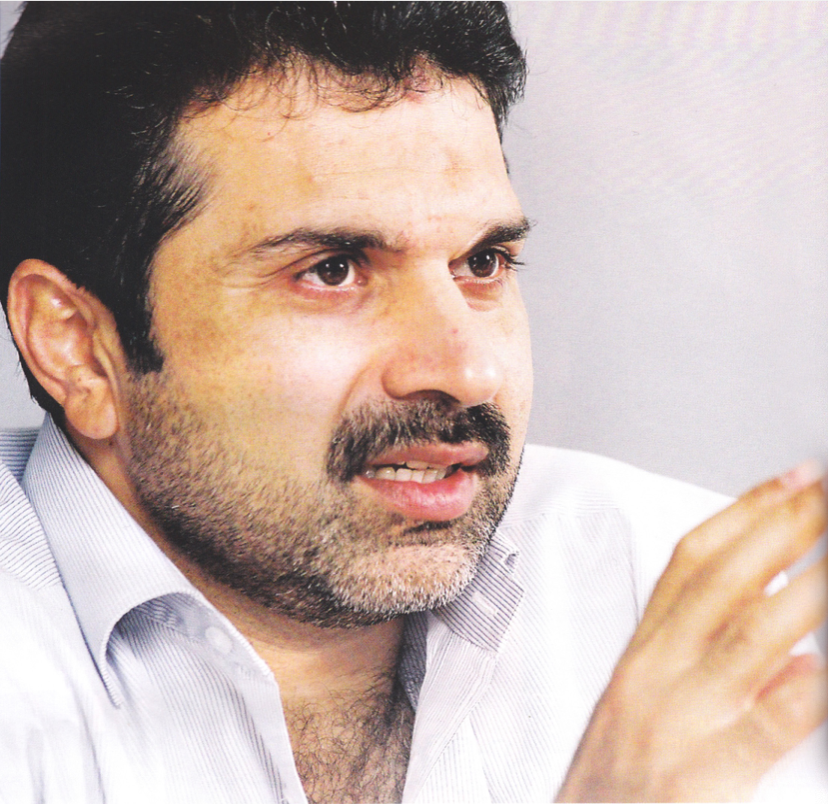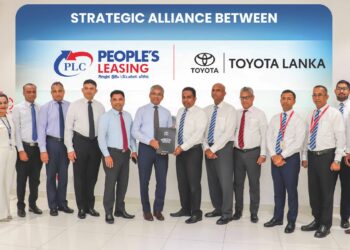Reckitt Benckiser is an international consumer products giant that has announced a steady growth of 21% in the Sri Lankan market for the financial year 2005. Nael Ahamed, Country Manager Reckitt Benckiser speaks to Anisha Niyas of Business Today about the company’s performance both internationally and in Sri Lanka.

Reckitt Benckiser has acquired Boots Healthcare International. How will the acquisition help Reckitt Benckiser as a company?
We have bought Boots Healthcare International (BHI) for 1.9b pounds. We have acquired their healthcare portfolio, which is primarily focused on over the counter drugs such as Nurofen, Clearasil, and Strepsil.
We have focused on the healthcare segment, which is growing well. We looked at it internally where 15% of our portfolio is health care.
We then looked at BHI, which has done extremely well in the past three years. Given that it has a higher margins and is growing well the acquisition can give us good synergy. After the acquisition can give us good synergy.
After the acquisition of Boots our healthcare portfolio has grown potential because of the synergies between distribution, sales, and marketing side, cost cutting, and working capital improvement. Our overall portfolio in healthcare will grow to 25%.
Reckitt Benckiser is a large company dealing with a diverse range of products. Does this have an impact on the success and the reach of the company locally?
There are many performance indicators of success. There are a lot of companies in Sri Lanka that are growing well. What is important is profitable growth. If you have profitable growth, it is then that you can invest.
Otherwise you would continue to stay in the business but as a low line company. In the case of Reckitt Benckiser we are not only growing at a very rapid rate, our profitability has improved substantially – higher than the general average in the market.
Our overall market expenditure is in excess of Rs 400m so we invest a lot of money in marketing as well.
What are the milestones reached by the company in the past 18 months?
We came out of a very difficult situation in 2003. We first had to uplift the team morale and complete performance at a certain level and secondly we had to get our share back in some of the categories where we had lost it. Getting our stocks back into the distribution channels where they belonged was the other challenge we faced.
Another achievement that I am proud of is our performance in modern trade, which is growing in Sri Lanka. We have been doing extremely well in that sector in the last couple of years. We have developed direct relationships with key accounts across the country.
That is just one side of the story. There is also the innovation of new products. In the last year, we have introduced at least 15 new products and three new categories. For example, we introduced Veet, which is a personal care depilatory product, as well Mortein Vapouriser – the latest format in the mosquito repellent market.
Given all those innovations – new products and ranges – it puts a lot of stress on the company’s resources in terms of investment and in giving due importance and focus to the product categories. While it has been an achievement it is time for us to consolidate so that we are poised for growth in the future.
Success is not about the destination – it is about the journey.
What drives the company?
Foremost are always people. You can have great brands but if you don’t have the right people pushing those brands, you will not make headway. My team is the driving force behind Reckitt Benckiser’s success in Sri Lanka.
Secondly, we have very strong brands. Thirdly, we have put in the right marketing money behind our brands and our distributors are aligned with our strategy. We have a very focused approach – know what areas we want to get into. Marketing and sales is our strength and we have outsourced our production facility to people who can do it better.
You can attribute our success to a very focused approach and attention to detail.
Last year Reckitt Benckiser, Sri Lanka won the Best Country Award 2004 out of all the companies in the developing market. Tell us about that.
There are three main areas in the company – North America and Australia, Europe and Developing Markets. From that position we have now come first.
I must say that is history. We won it and took it in our stride. The real challenge is to stay ahead. Success is not about the destination – it is about the journey. You can be successful tomorrow– people will thrash you.
It is a journey so you have to be successful throughout. You have to continually stay focused, put in resources and bring in results.
Winning the ‘Best Country Award’ is now history. We have bigger challenges ahead of us now. Is it easier to get to the top but it is difficult to stay there.
What obstacles does your company face in marketing fast moving consumer goods in Sri Lanka?
In the overall operation one of the things that we want to improve is Sri Lanka’s labor law. That is one area which is not progressive. It gives a total one-sided protection to employees regardless of whether they are performing or not. One has to recognize that every company is in the business of making money. As long as the money is made ethically, without exploitation, then its not a problem. In the process everybody has to put in his or her two cents worth – every employee must contribute.
The number of holidays is quite an impediment when doing business. It totally upsets proper planning.
These are challenges we fact when it comes to the fast moving consumer goods sector, but Sri Lanka does have potential.
Do you have a regional strategy for SAARC in order to come to the number one position in the household-cleaning segment of the market?
We already are – in terms of household cleaning products we are number one globally. When it comes to regional strategy – our region consists of five or six main countries – we dominate the categories we operate in. In Sri Lanka we are market leaders as well. Being market leader puts extra pressure and responsibility on you. You have to constantly innovate and convince the consumer to buy more of your products on more occasions.
What are your plans to bring more product lines from your diverse portfolio into the Sri Lankan market?
We don’t bring products for the sake of doing so. We try to identify needs first. We have a huge global pipeline so we first look at the product and decide if they suit consumer needs here. We then introduce the products.
We always plan ahead, especially in terms of next year’s calendar. We know what products we will introduce here for the next three years. We are working on the development of the products in the Sri Lankan market. They will obviously be brought in at the right time. We do research and studies as well because we cannot foresee whether a product that we plan to launch in 2009 will be valid here. We need to know if launching the product is the right move to make.
The plans that we have are not sacrosanct. They can be changed and products can be switched if the need arises.





